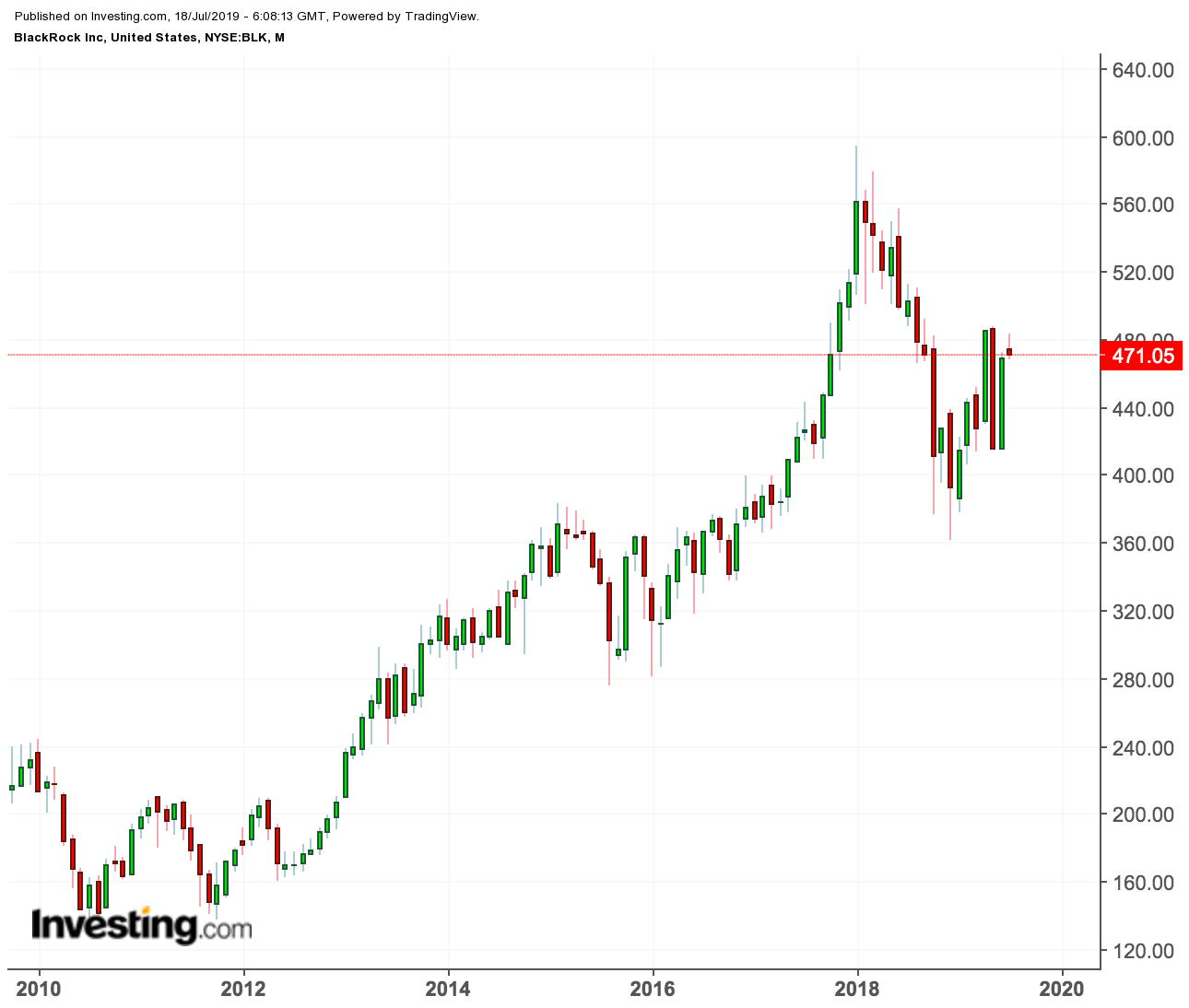- Reports Q2, 2019 results on Friday, July 19, before the market opens
- Revenue Expectation: $3.58 billion
- EPS Expectation: $6.65
The world’s largest asset manager, BlackRock (NYSE:BLK), faces intense scrutiny when it reports its second-quarter earnings tomorrow. Investors are concerned, and will want to know exactly how the company’s profitability is being affected by slowing growth and price wars.
Analysts aren’t upbeat about the near-term growth prospects for the New York-based firm. For the quarter that ended on June 30, BlackRock is likely to report almost flat sales and profit when compared to the same period a year ago, according to consensus forecasts. Profit may slide to $6.65 a share from $6.66 a year ago on sales of $3.58 billion.
BlackRock’s financial performance in recent quarters has been a mixed bag for investors. After reporting a decline in earnings last year, the company was still able to produce impressive rise in sales which increased 4.5% in 2018. But this year doesn’t look that promising. Sales fell 7% from a year ago in the first-quarter, despite the rising market.
BlackRock grew into a $6.5 trillion money manager during the bull market of the past decade, helped by its surging iShares ETF business. The ETF, or exchanged-traded funds, have been the engine of growth for BlackRock since the 2008 financial crisis, allowing it to more than double assets under management.
But that growth area is coming under threat as the company faces slowing net inflows and a price war that is pushing fees lower. Competition from both big and smaller players has pressured margins, according to Bloomberg data. Five years ago, BlackRock was making about $0.25 in revenue a year for every dollar that it managed. Last year, that figure fell to $0.23, and in the first-quarter, it fell further, to $0.21.

These headwinds have mainly been responsible for BlackRock shares’ inconsistent performance since early 2018. Trading at $470.85 at yesterday's close, they have surged about 20% this year, but have gained just 10% over the past two years.
Still A Powerful Name
Despite this negative backdrop, BlackRock remains a powerful name in the asset-management business. It’s hard to discount its dominant position and future upside potential. ETFs, for example, are still nascent outside the U.S.
The company predicts the global market for the funds will more than double by the end of 2023, to $12 trillion, driven by continued downward pressure on financial advisory fees and investors’ rising willingness to use bond ETFs for easy exposure to fixed-income markets.
The company’s financial risk software, known as Aladdin, remains a powerful tool to earn recurring revenues, and offers a great hedge when the markets turn negative. Aladdin can predict how a portfolio performance can be affected in extreme scenarios, such as the crash of 2008. Its users include pension funds, insurance companies, and competing asset managers who pay to license Aladdin based on the capabilities they use.
Bottom Line
BlackRock, despite its wide moat and future growth potential, isn’t the kind of stock that one should buy when the markets have become vulnerable as a result of escalating risks to global growth. BlackRock’s shares now trade at almost 18 times forward 12-month earnings, down from 21 at the beginning of last year, suggesting investors are adjusting their expectations.
After the powerful rally of the past decade, in our view, its stock has seen the best in this bull market and in the short-run, it’s unlikely to be a bet that will pay off in a big way. Staying on the sidelines is a better strategy for this name.
